#behaviour science
Explore tagged Tumblr posts
Text
I've seen posts going around claiming that petting animals is basically tricking them into thinking they're being groomed, and it's bugging me because, like, there's no trickery afoot. Petting and scritching are grooming activities. They help to dislodge loose fur and foreign objects and more evenly distribute protective oils, among other things. Primates are social groomers, and the human impulse to scritch is the legacy of our primate ancestors. We see an animal we like, even a dangerous one, and the monkey brain says "groom that thing".
73K notes
·
View notes
Text

KILLER WHALES CRAFT KELP TOOLS FOR SOCIAL GROOMING
In a remarkable discovery, researchers have documented wild Resident killer whale (Orcinus orca ater) manufacturing and using tools in a social context. Observed in the Salish Sea from April to July 2024, members of the endangered southern resident population were seen detaching short lengths of bull kelp (Nereocystis luetkeana) and using them during tactile interactions with a partner, a behavior the authors call allokelping. This behaviour differs from playful kelp draping commonly seen in cetaceans, whales in this study deliberately fashioned kelp segments using their teeth, positioned them between their bodies, and coordinated their movements to roll the kelp across one another’s skin.
This represents a potential case of tool-assisted allogrooming, a behaviour rarely documented in non-primates and never before in marine mammals. Statistical analyses suggest that allokelping may serve both hygienic and affiliative functions, being more common among close kin and individuals of similar age, and possibly linked to skin molting. The whales’ use of their entire bodies, rather than limbs, to manipulate the kelp, and the mutual benefit of the interaction, make this a unique form of tool use in the animal kingdom. If confirmed, it would expand our understanding of cetacean intelligence, culture, and the evolutionary roots of cooperation.
Photo: Orca grasps a bull kelp stalk by the holdfast end and detaches a short stipe segment for use in allokelping.
Reference (Open Access): Weiss et al., 2025. Manufacture and use of allogrooming tools by wild killer whales. Current Biology.
#Orcinus orca ater#orca#Nereocystis luetkeana#bull kelp#allokelping#allogrooming#science#biology#behaviour#marine biology#sciblr#scienceblr
1K notes
·
View notes
Text
5 Common Myths About Positive Dog Training
“Positive dog training” is a marketing catchphrase used by nearly every dog training website on the internet. The phrase is used both deceptively and in utter ignorance of what it means in the context of behavior science. Positive Dog Training may not be what you think There are an awful lot of dog trainers out there who are touting their dog training methods as positive as a means to pull in a…

View On WordPress
#behaviour science#Cesar Milan#dog#dog trainer#dog training#food reinforcers#golden retriever#positive dog training#positive reinforcement
1 note
·
View note
Text
I know we all get a giggle out of Dracula playing at being his own staff and running around the castle to do the work of a household by himself but a thought I had during today's entry was that it could be another tactic he uses to make Jonathan more vulnerable to his manipulation.
When the driver disappears, Jonathan is left waiting on the doorstep of the castle, waiting for the Count or a member of the staff to let him inside. All the while, he's stuck standing there in his thoughts, stranded in the mountains of a foreign country that are very much hazardous to him. There are wolves, strange blue flames, and an inescapable feeling of pure dread created by the foreboding scenery and general fear of the people around him. The whole journey to Castle Dracula, Jonathan felt afraid. And now he's alone with no way out, left with only his thoughts as he waits to be let into the 'safety' of the castle. He describes being crowded by his doubts and fears, wondering what on earth he's gotten himself into, but also how he can't turn back because he's a full-blown solicitor, and that this whole situation is starting to feel like a nightmare that he can't wake up from.
And then Dracula arrives, welcoming him inside and insisting on carrying his luggage for him, and Jonathan feels his doubts and fears melt away. Dracula - while strange to him in some ways and already arousing some suspicion with his resemblance to the Driver - immediately becomes a sort of safety from the nightmare. That long wait between the Driver's exit and Dracula's arrival generates an unease that can be taken advantage of.
In dogs, feelings of Fear leads to Seeking, Frustration and Rage behaviours. Whatever makes the Fear go away first becomes super reinforcing and the dog will go with what works: strange man with a big stick stops being scary if I bite him, then I'll bite faster the next time a similar threat appears. Going in my crate means the scary thing stays away from me, then I'll go in my crate when I feel scared. This person makes me feel safe? If a scary thing happens, I'll go to them and they'll either make sure the bad thing doesn't kill me or they'll tell me that I don't need to be scared.
In Jonathan's case, Dracula is the positive association. Scary place, scary circumstances, lots of doubt and fear? Well the Count I've come to visit has arrived to let me inside, away from the scary things, and is treating me to a lovely dinner while being very polite and courteous. I am no longer scared, therefore the Count is someone who makes me feel safe and therefore I am safe around him.
By letting Jonathan wait to be let into the castle and to engage in socialising, Dracula lets that fear build up. Lets it get to Jonathan just enough that he starts to feel it keenly before sweeping it away and becoming a point of refuge and safety. The only refuge and the only safety.
#dracula daily#jonathan harker#count dracula#i did a course that covered dog behaviour recently can you tell#anyways i can imagine dracula purposefully taking his time as he moves between being the driver and the count#just drag it out a few more seconds as he shaves his beard. let his guest simmer in their own anxiety and restlessness#then hello yes welcome no need to be scared for i have arrived#i feel like he's got the routine down to a science at this point. he knows just how much his guests can take before they break#so he can swoop in and be the warm benevolent host and put them at ease
190 notes
·
View notes
Text
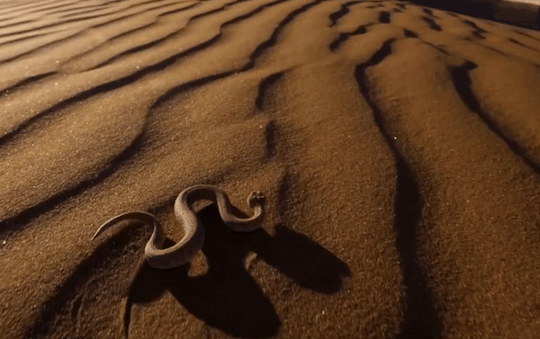
#animals#science#education#nature#photography#lol#explore#gifs#gif#beautiful#beauty#reptile#snake#awesome#stunning#gorgeous#animal lover#reptiles#animal behaviour#moing#s-shapes#deserts#movement#slithering forward#adorable
165 notes
·
View notes
Text
McLaren PR manager: so when it comes for your image in f1 and how you would like to define yourself, your brand could be a lot of things. it's a manifestation of who you are, the image people come to associate with you, a story about your personality for people to attach themselves emotionally to over what could be many years–
Oscar Piastri: it’s Australia
McLaren PR manager: i’m sorry what
Oscar Piastri: it’s Australia
McLaren PR manager: ...but there are so many possible narratives to explore. could be full of potential, you know, the young come-up, the ascendant wildcard, cold technical skill
Oscar Piastri: nah it's just Australia



#oscar piastri#i think i actually love him sm lol#computer science nerd behaviour#this was how it actually happened#i was there at mclaren HQ so it's a true story#f1#op81#wiz.yaps
192 notes
·
View notes
Text
Dolphins have names? Dolphins have NAMES?? DOLPHINS. Have. NAMES. Dolphins have names.
They have a specific sound that they use to describe themselves, like, "hi, nice to meet you, I'm eeeeEeeEEEee, and you are?" and "hey, it's eeeeeEEEEeeEee, I'm over here," and other dolphins will use that name to get the attention of that specific dolphin. I'm gonna. I'm fine
There's also stuff here about them taking it easy on humans while playing, to account for their poor swimming skills. That doesn't impress me that much, in terms of "wow, animals can do that?" because a lot of dogs very clearly also do similar things - e.g. my childhood dog refusing to play "vicious dogs" (tug of war) with tiny me - but it really is a sign of intelligence and social behaviour and like, tact.
But names. That's. That's really something.
14 notes
·
View notes
Text
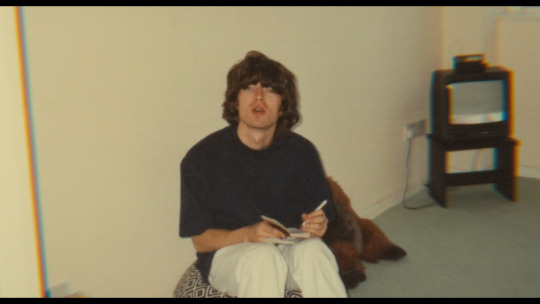
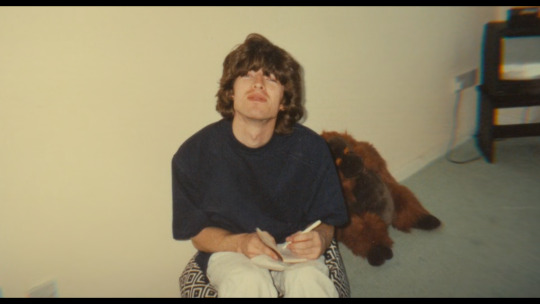
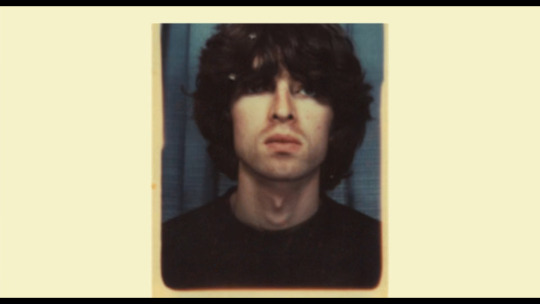
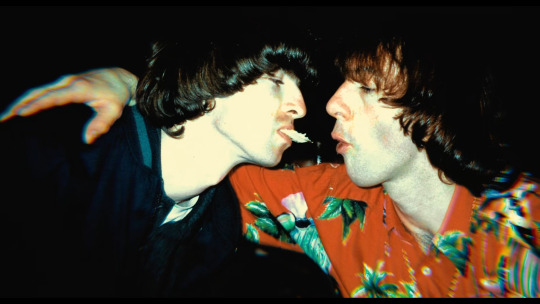

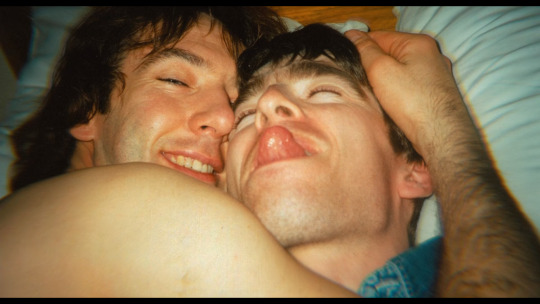
the person responsible for cutting this hair should have been put in the stocks and egged mercilessly to death for their hideous crime
#telly the treacherous barber ass behaviour smfh makes me sick#noel gallagher#supersonic 2016#im sure these pics are everywhere (although tbh i haven't seen them) but i need them all in one place here for Reasons#science and history reasons#oasis on main
75 notes
·
View notes
Text

#wolf#wolves#behavior#behaviour#science#pseudoscience#wolf pack#fact#facts#ausgov#politas#auspol#tasgov#taspol#australia#fuck neoliberals#neoliberal capitalism#anthony albanese#albanese government
17 notes
·
View notes
Text
11 notes
·
View notes
Text
A lot of people think that studying psychology and sociology and human nature in general while also self-reflecting and working on growth as a person will make you some hyper understanding, at peace, compassionate, Zen type person.
They think that having access to all this information and being able to understand it will make things so much easier and clearer.
It does not.
It actually throws you through one of the worst mental Loops there is. It complicates things. You know why? Because humans are complicated and trying to study that complexity is also complicated and leads to complicated morals and questions that really suck to have to ask and answer.
It's not just about studying people who have been victimized and are good people under the surface who were just trying to survive, even though that is the majority of humankind. And with that comes the understanding that even the most vile person is most likely vile because they had to learn to be because something horrendous happened to them and most likely kept happening to them while they had no examples of what good was. And to realize that the absolute vile person that you despise is just showing unhealthy coping mechanisms is the same as a people-pleasing sweetheart who's also showing unhealthy coping mechanisms really throws you through a damn loop. Because you realize both these people are suffering one is just suffering in a way that's easier to digest.
It also sucks because when you understand human nature, you understand that the best way to get through to somebody is to be compassionate towards them and to show that you understand them or understand where they're coming from. Even if you disagree with someone, the best way to get them to listen to you is to make them feel heard as well. And we've all come across people who say some outright awful things and we don't want to give them any sort of positive feedback whatsoever, we don't want to show them any compassion or understanding whatsoever we just want to attack them. I've been there, trust. However, some people you can be as empathetic as you want to them and sometimes they just don't change because they're too far in and you can't force someone to change doesn't want to. And there does get to a point where being genuinely kind to someone activates a kind of fight-or-flight in them so they interpret that as an attack because they've never had basic empathy modeled for them. See what I mean by it gets complicated and it actually sucks?
Like, I don't know, I went into these studies because I wanted to better understand myself as well as the people around me and I wanted to be able to help people and make the world a little better but it is not as easy as just pointing out some symptoms or being compassionate to somebody. It is complex, it is frustrating, and it is delicate and it takes a lot of self-control that I am still working on mastering.
Not to mention on top of all these complexities, people think that just because you are studying Behavioral Sciences you should be perfect and never make a mistake when interacting with someone and you should never be allowed to become frustrated or have a slip up. People think that you should have this professional non-judgmental Persona at all times and never call someone out on their bullshit which literally only adds to the complication and the stress of the whole thing.
There is nothing peaceful about learning the complexities of the human mind.
#mental health#psychology#mental illness#education#sociology#communication#conflict#therapy#human behaviour#self reflection#behavioral science
9 notes
·
View notes
Text
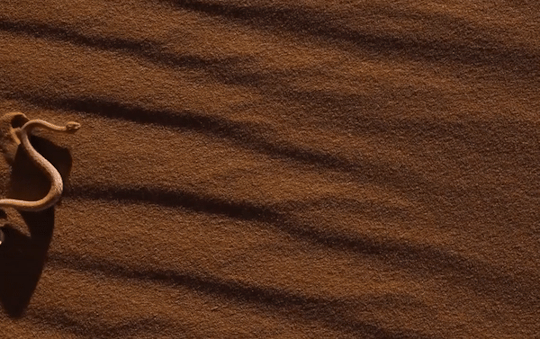
#animals#science#education#nature#photography#lol#explore#gifs#gif#beautiful#beauty#reptile#snake#awesome#stunning#gorgeous#animal lover#reptiles#animal behaviour#moing#s-shapes#deserts#movement#slithering forward#adorable
100 notes
·
View notes
Text
I’ve been brainstorming (and when I say brainstorming I really mean "daydreaming about while at work") a concept I’m now dubbing “Neurobehavioral Conditioning” or “Neuro-Operant Training” — basically an advanced way to "train" a whumpee by combining behavior conditioning, operant conditioning, and behavioral modification. Think of it as a futuristic shock collar, but with a twist.
The general concept is that of an implant. This implant would be remote, controlled by the trainer, owner, whumper, etc, and at eh press of a button would "reward" the whumpee for good behaviour, following orders, being submissive, or whatever else.
I have three ideas for this implant:
Deep Brain Stimulation (DBS)
Mechanism: DBS involves implanting electrodes in specific brain areas, like the nucleus accumbens, to stimulate pleasure and reward centers.
Control: A remote control would adjust stimulation levels to reward good behavior.
Pros: Highly targeted, adjustable stimulation.
Cons: Requires surgery with risks like infection and brain damage.
Real World Inspiration: DBS is used to treat conditions like Parkinson’s and severe depression, showing its ability to enhance specific brain functions.
2. Insulin Pump-like Device Administering Euphoric Drugs
Mechanism: This device would release small doses of a euphoric drug into the bloodstream.
Control: The trainer can control dosage and timing to reinforce positive behavior.
Pros: Easier to implement than brain surgery, easily adjustable.
Cons: Risks of addiction, tolerance, and side effects.
Real World Inspiration: Think of insulin pumps but for mood-enhancing substances. While not perfect, the concept of continuous, controlled substance delivery is pretty similar.
3. Insulin Pump-like Device Administering Neurotransmitters
Mechanism: Releases neurotransmitters directly into the brain, affecting mood and behavior.
Control: Like the drug pump, it’s remotely controlled for precise neurotransmitter release.
Pros: Direct and potentially faster-acting than drugs.
Cons: Requires precise control to avoid imbalances and side effects.
Real World Inspiration: Current research on neurotransmitter modulation in psychiatric treatments.
Now… Imagine This:
The whumpee is unaware of the implant. Every time they follow an order or please the whumper, the button is pressed and they experience a wave of pleasure. The sense of joy and satisfaction becomes so intertwined with their compliance that eventually the button may not even need to be pressed. In Whumpees mind the wave of pleasure comes directly from obedience.
** Whumper glanced up, catching Whumpees eye. “You’ve done very well today. I’m proud of you.” Whumpees chest swelled with warmth at the praise. They didn’t fully understand the source of their happiness, but in that moment, it felt perfectly aligned with their purpose. The sense of joy and satisfaction was so deeply intertwined with their compliance that they couldn’t imagine anything else.**
**Whumper called out gently "Could you please tidy up the coffee table, dear? It looks a bit cluttered." Whumpee "Of course!" They move swiftly to the coffee table, clearing away magazines and placing them neatly in a stack. As they work, they hum softly, a look of contentment on their face. The moment they finish, a wave of pleasurable warmth washes over them, originating from deep within their mind. They feel a sense of happiness and fulfillment, a smile spreading across their face as if they had just accomplished something truly meaningful.**
I feel the subtlety of influencing the whumpee’s emotions makes this concept all the more intriguing (and creepy). Sure, the whumper could crank up the remote to enforce submission, but the quiet conditioning might be even more satisfying.
Honestly, maybe it's a good job that I never actually qualified as a doctor what this is the sort of thoughts I have while stood in a gym yelling at someone on a treadmill 😂.
Mandatory science dump Under the cut
Key Neurotransmitters and Their Functions:
Dopamine:
Function: Often referred to as the “feel-good” neurotransmitter, dopamine plays a crucial role in reward, motivation, and pleasure. It also influences movement and emotional responses.
Theoretical Effect of Artificial Addition: Increasing dopamine levels can enhance feelings of pleasure and reward, potentially improving mood and motivation.
Too much = addiction and psychosis.
Serotonin:
Function: Serotonin is involved in regulating mood, appetite, sleep, and memory. It has a calming effect and helps maintain a balanced mood.
Theoretical Effect of Artificial Addition: Boosting serotonin levels can improve mood and reduce anxiety and depression.
Too much = serotonin syndrome.
Norepinephrine:
Function: This neurotransmitter is involved in the body’s “fight or flight” response. It increases alertness, arousal, and attention.
Theoretical Effect of Artificial Addition: Enhancing norepinephrine can improve focus and energy levels.
Too much = anxiety and high blood pressure.
GABA (Gamma-Aminobutyric Acid):
Function: GABA is the primary inhibitory neurotransmitter in the brain. It helps reduce neuronal excitability and promotes relaxation and calmness.
Theoretical Effect of Artificial Addition: Increasing GABA levels can have a calming effect, reducing anxiety and promoting sleep.
Too much = excessive sedation.
Acetylcholine:
Function: This neurotransmitter is involved in muscle activation, memory, and learning.
Theoretical Effect of Artificial Addition: Enhancing acetylcholine can improve memory and cognitive function.
Too much = Muscle cramps.
Key Brain Areas for DBS for this purpose:
Nucleus Accumbens (NAc):
Function: The NAc is a central part of the brain’s reward circuit. It plays a crucial role in processing pleasure, reward, and reinforcement learning.
Theoretical Effect of DBS: Stimulating the NAc can enhance feelings of pleasure and reward, potentially improving mood and motivation. This area is often targeted in treatments for depression and addiction.
Ventral Tegmental Area (VTA):
Function: The VTA is involved in the release of dopamine, a neurotransmitter associated with pleasure and reward.
Theoretical Effect of DBS: Stimulating the VTA can increase dopamine release, enhancing reward-related behaviors and potentially improving mood.
Medial Forebrain Bundle (MFB):
Function: The MFB is a pathway that connects the VTA to the NAc and other brain regions involved in reward processing.
Theoretical Effect of DBS: Stimulating the MFB can modulate the entire reward circuit, potentially providing a more comprehensive enhancement of pleasure and motivation.
Central Amygdala (CeA):
Function: Traditionally associated with fear, recent studies have shown that the CeA also has neurons involved in reward processing.
Theoretical Effect of DBS: Stimulating the reward-related neurons in the CeA can promote positive behaviors and enhance feelings of reward
A few real world related technologies and research that explore similar concepts:
Automated Insulin Delivery (AID) Systems:
These systems combine insulin pumps with continuous glucose monitors (CGMs) to automatically adjust insulin delivery based on real-time glucose levels1. The technology and principles behind these systems could be adapted for neurotransmitter delivery.
Neurotransmitter Modulation in Psychiatric Treatments:
Treatments for conditions like depression and anxiety often involve modulating neurotransmitter levels using medications such as SSRIs (Selective Serotonin Reuptake Inhibitors) to increase serotonin levels2. While not delivered via a pump, the concept of adjusting neurotransmitter levels to influence behavior is similar.
Research on Neurostimulation and Neurotransmitter Release:
Studies have explored the use of electrical stimulation to influence neurotransmitter release in the brain. For example, deep brain stimulation (DBS) can affect dopamine levels, which is relevant for treating Parkinson’s disease.
#whump ideas#whump tropes#whump prompts#whump community#Whump science#sometimes my brain worries me#subtle behaviour modification whump#how to condition a whumpee#whump prompt
22 notes
·
View notes
Text

Kraz, royal healer
Kraz (Razzy if they like you(but they like everyone)(except Jerry)) is a human (?) mage who voluntarily exiled themselves to the underground to follow monsterkind during the war. They are later appointed royal healer by the king and queen and has devoted themselves to the betterment of monster society ever since. They are the only human the royal scientist ever tolerated (although would you call sharing lab coats and beds tolerating or...something else?)
Information
-Species : mage (half monster, half human)
-Age : older than the barrier. As long as they will to live, it appears that a mage cannot age.
-Gender : apparently born a female, although it is unclear how sexual dimorphism develops in mages. Kraz does not specifically care.
-Soul : Green
-Height : 1.99m (6'5)
-Hair colour : Black (somehow iridescent ?)
-Eye colour : deep dark brown. Their sclera is grey as well.
-Build : sickly thin, actually skin and bones. They never eat much of anything, claiming that they do not need a lot of food. It worries people quite a lot, especially Toriel, but they have been like this for hundreds of years so... at least they're not dead ? Still, they scare the kids.
-Personnality : a sweet, calming presence. They exude an aura which makes anyone around them feel at peace. Although they are quite akward and generally anxious, they smile easily and brightly. Kraz is very friendly, caring, and kind to a fault. Has quite an outdated manner of speech. A jokester. Always does their best to please people around them. Deeply devoted. Probably has some sort of attention deficit. Easily fascinated. Suffers from chronic bird behaviour (will bring you trinkets??).
-Likes : gardening, playing the piano, snow, cooking, puzzles, collecting shiny trinkets, science, herbal medicine, cultivating bacteria, fuzzy and furry fabrics, gift giving, late 1800's fashion, dark spaces, funny socks, Gaster.
-Dislikes : loud noises (especially clamoring crowds), being watched, sudden movements, bright reflective surfaces, small enclosed spaces, bitter foods, novelty and breaking their routine.
Backstory
Kraz was born to a human mother and a monster father during the war, as mages often are. Abandoned by their mother, who could not endure the shame of their birth, they were taken under their father’s wing and raised amongst a small monster village. Early on, they manifested an extremely intense green soul and spectacular magical power, even for a mage. Although unequipped and unprepared to nurture such potential, the monsters in Kraz's community did their best to encourage the toddler's magical prowess, such as having them heal cuts and bruises, or speed up a few carrots' growth. But as war progressed, human armies swept through monster territory and eventually raided the child's village, pillaging and slaughtering everyone in their path. In these times mages were rare, being the product of monster-human relationships, but extremely sought after by humanity, who could only manifest minor magic potential. Stumbling upon the young Kraz and recognising in their physiology the traits of a "hybrid", human soldiers immediately identified them as a mage and took them away to be raised amongst humans. Their father, if he ever survived the attack, never stopped looking for his little bird until his dust settled on the ground. And so Kraz was raised in human war camps and settlements, amongst soldiers and other mages. Being so young, they only ever had vague memories of their time amongst monsters and soon put them to rest. As they grew, their healing powers grew with them, and it was soon clear to the commanders that Kraz may as well be the most spectacular healer that they had ever known, capable of rising men at death's door back on their feet and ready to fight in mere minutes. Suffice to say, as one of their greatest asset, they were sent from battlefield to battlefield, from division to division in order to rise the almost dead and reinforce the dwindling human forces. But they had a fault. Kraz, at their heart, was kind. Compassionate. Caring. And oh so, so young still, no more than fifteen. And the pain, the suffering inflicted by and to monsters broke their soul into pieces. See, despite all the propaganda, they could never quite bring themselves to hate monsters. Hate half of themselves. And so in the midst of the battle's confusion, in secret, they would slip a hand or a green bullet towards a bleeding frog here. A dusting lion there. They wished they could just run to them and pour their whole magic into the wounded, but the human soldiers watched them. Always. But eventually, as war was nearing its end, temptation was too great. They could take it no more. And so during a bloody battle, they slipped away from the soldiers surrounding them and ran to a fallen monster, who was already dusting away. A skeleton. The young mage fell to their knees, reaching for the monster's broken face with magic already at their fingertips and reassurances spilling from their lip, and poured everything they had left as the soldier tried to struggle and speak. He barely was able to call to them, in a language they didn't know, his bones just starting to reform, but fate is oh so cruel. Kraz could only slip their guard's attention for so long, and just as life started to flicker back in the man's face, they were torn off his bloodied body and promptly covered in his dust, their work undone by the fall of a sword. As the soldiers dragged the teen away, they could only claw down at the dusty floor to rack up the dust, and a nametag. Dingbats.
"Traitor", they were deemed. "An error of nature", "a freak", they were called. But a valuable freak nonetheless. Their magical abilities were still wholly unmatched through all of the land. They were needed. And so Kraz was beaten down, corrected, whipped back into shape. Into following orders. Royals spoke of banishment. Of a barrier. And they needed mages.
Finally, monsters were defeated. They were to be sealed underground. Kraz and the other mages assembled, staring down at a beaten monsterkind, a sea of eyes and bleeding hearts crying out at them as they chanted the words.
They couldn't do it. They couldn't.
They ran to them.
As the barrier rose up, this child fell to their knees in front of Asgore and Toriel and begged them to let them stay. To right this wrong. To help. They did.
And so Kraz poured their heart out. It wasn't easy, getting monsters to accept human help, even though they shared some physical traits. They slaved away for nothing in return, growing crops magically in dead ground and never taking even a grain of wheat for themselves. Endlessly imbuing water with their energy to create remedies for everyone. Only accepting the bare minimum of food to stay alive, even though they felt as if they were tearing this food away from the hands of the needy. They tried so, so hard to repair humanity's sins. Clear their name in the eyes of monsters.
And eventually, it somewhat worked. Instead of frowns, they were faced with smiles. Children stopped crying when they saw the healer's incomplete beak and started to spare them a smile. The elderly stopped refusing treatment from them. And even though they still had to face a seemingly unclimbable wall as they began further studies in medicine, biology and microbiology, chemistry, agricultural sciences, magical studies, anything to broaden their knowledge and help, they made it. (No thanks to the shy, awkward, standoffish and straight up rude engineering-chemistry-physics student which whom the king and queen pushed Kraz to hang out with. They said that it would "help the both of you, you kids would work beautifully together". Not that the mage minded, as a matter of fact they quite enjoyed his presence and always did their best to be agreeable and overall lovely company; but the skeleton never quite seemed to get over his absolute loathing of humans. Oh well, no matter. They'll keep trying anyways.). Eventually they did succeed and ascended to the position of "tolerable fellow student who I regularly hang out with" in the eyes of their adversary. When Kraz got their first doctorate, in medicine, WingDings even cracked a smile. And as the two completed their studies, the now mage-doctor was promoted to "acceptable collaborator". A win for the ages!
Kraz finally moved out of the derelict place they were practicing medicine in since the war to a more acceptable place (which was, well, their newly furnished house, courtesy of the royal family for their friendship and as a congratulatory gift for their doctorate) and kept working as always. But with an official title to strengthen their position, and what some may call a reluctant friend, things seemed lighter. Monsters were flocking to their office, business (which was still free but their patients insisted on leaving little somethings) was booming, their ties to their fellow "collaborator " deepening, and the doctor became sincerely appreciated in their community. Maybe not in all monsterdom yet, memories of the war never quite fading, but it was progress. Things were going well.
But it seemed that fate had other plans.
One day, plague broke out. The illness decimated monster populations, entire families perishing from an unknown condition.
And Kraz, oh Kraz, tried everything. Every spell, every potion, every cure they could think of. Nothing worked. They asked for help to the other healers, consulted with other scientists, even asked the engineers if they could think of something, anything. Nothing worked. They could only watch as the malady swept through monsters, powerless to watch them die, just like they did during the war.
No. No.
They would not stand for it, they would not STAND FOR THIS !! They will find a cure. At any cost.
They locked themselves in their laboratory.
One day. Two days.
Three days.
Six days.
Eight days.
Their colleagues had tried banging on the door, shouting at them to come out, to go home, they would not answer. They called for the doctor’s friends, to no avail. Eventually, it was WingDings Gaster, the royal scientist himself, to be at their door threatening them to “kick their feathery ass if it’s the last thing he does” in order to get them to open the damn door.
No answer.
But the royal scientist was a stubborn man. And when words failed, he proceeded to take the door’s security system apart and barge into the lab, only to be taken aback by the stench. He covered his non-existent nose with a sleeve and bit back the urge to let last night’s dinner see the light of day again, ushering the doctor’s worried coworkers away. It reeked of illness. It reeked of plague. The skeleton, being the only one without lungs and hence immune to all airborne diseases, made his way through the mess of papers, vials and…patches of blood and hair…to the form bent over his friend’s table. Kraz was staring straight at him with their big, beady dark eyes which seemed to be glazed over. They looked even paler than they usually do, which is to say whiter than snow, and seemed so frail that they could snap at any moment. Their face was also swimming in what seemed to be bloodied spit, over a mountain of papers scribbled with words that made no sense. Suffice to say, they looked like death itself. They looked dead.
It was as if Gaster’s bones were made of ice. Barely thinking, he grabbed his friend’s limp body, by Asgore were they TALL, and zapped away somewhere safe. Somewhere clean. His place, apparently.
He cleaned Kraz. Changed them. Laid them in bed. Listened to their delirious babbles, relieved that at least they were alive. In a moment of clarity, the doctor pleaded him to retrieve some instruments from their lab and conduct a series of tests on samples of their blood, which he was urged to collect daily.
“I need to help them Dings. Please. Please, I beg of you, do this for them. Or else I would have done this for nothing. Please.”
Eventually, the unthinkable happened. They got better, the little colour their cheeks normally had returned. As soon as the healer could walk again, they were out of their friend’s house and back in their lab (ignoring everyone’s admonishments). Barely a week later, there was a cure for the seemingly incurable plague.
Monsterkind was saved.
And everything was truly fine. Kraz was promoted to Royal Doctor (a fact they endlessly teased Gaster with, because Now you can’t boss me around anymore mister science man), was granted a whole department in the Hotland labs, and was now revered though the kingdom! Their promotion to head doctor was also accompanied by another, to the exclusive rank of “beloved special stupid idiot who gave themselves the plague” in the soul of a certain someone. They weren’t going to live that one down anytime soon. But well, when the royal scientist’s coworkers noticed that his lunch was packed daily in the common room fridge with “Do not forget nourishment today dear, I will see you tonight at our usual, -A stupid idiot “stuck to it, let’s say that the air in the Core labs was decidedly more pleasant. And Alphys, a young intern that the Doctor befriended during one of their numerous visits to their collaborator-friend-lover(?), could barely contain her gushing to anyone that might listen.
Yes. Times were good.
Until a human fell.
#undertale oc#character sheet#Kraz#YIPEE FINALLY DONE!!!#I am so so excited to get you guys know them better#I'm still trying to define their personnality precisely but I've been thinking about them FOREVER#their lore is a little insane but. They're weird too.#Literally a bird. Has bird behaviour SO BAD#I'll draw them doing stupid shit dont worry. Bringing Gaster beads and stuff. A lover's offering.#They look scary as hell but actually they're a big softie. Very silly and kind person.#The giganormous half beak giant height and skeleton apearance just don't help#I love them.#permission from/to my mutuals to draw razzy interracting with your guys ?#(if i ever have time to draw lmao)#they're dating the royal scientist because I need to kiss that goop man personally#their relationship is science x science (different flavours) they're the worst lmao#kraz is the only seemingly responsible one#they have this self care thing nailed (forces Gaster to eat and shower)#date night is either gaster building something and kraz doing the very meticulous bits or running tests on razzy's new bacteria farm#“Can you make a bacteria that tastes like tomato sauce” well a week and a half later apparently yes you can#these two i swear#Kraz wears funny socks and Gaster funny ties. The funny sciences.#my art#my oc
12 notes
·
View notes
Text
New research published in Current Biology sheds light on how animals create and maintain internal spatial maps based on their surroundings. The study, led by Dr. Guifen Chen from Queen Mary University of London, delves into the brains of mice navigating a two-dimensional virtual reality (VR) environment, revealing the surprising importance of specific visual cues for building and maintaining spatial maps. It reveals that specific visual cues—in this case, elevated walls—are crucial for stabilizing the neurons responsible for spatial navigation in virtual reality (VR).
Continue Reading.
41 notes
·
View notes
Text
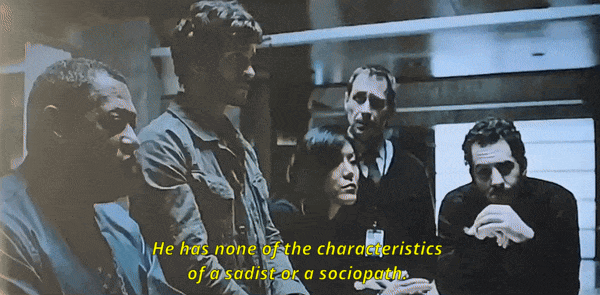
You’re killing me with the foreshadowing here, Season 1 Hannibal.
#foreshadowing#hannibal s1#hannibal shitpost#nbc hannibal#hannibal#none of the characteristics of a sadist or sociopath!#pretty sure behavioural science is just astrology for cops
22 notes
·
View notes